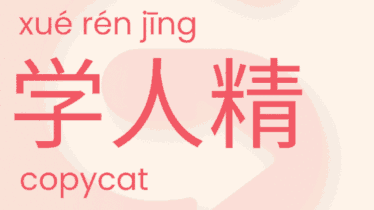How to say goodbye in Chinese
Every conversation comes to an end! Here’s how to say bye or goodbye in Chinese. We list several ways to say bye in the Mandarin language.
PS: Also read our guide on how to say hello in Chinese.
The most Common to say Goodbye in Chinese 再见 Zai Jian
Students frequently end text or email conversations with “再见 zàijiàn” which can be translated to “see you” in English. However, in Chinese, this is a actually very formal way to say “Goodbye”. It’s likely that students are simply trying to indicate respect or deference to their teacher however once again in the Chinese context it’s slightly awkward and can be seen as rude. In Chinese, the feeling that “再见” gives, is very similar to having someone abruptly close a door in your face. Sometimes it is definitely used like this in Chinese: 再见 zàijiàn! (Spoken sharp and abruptly). Saying “再见” out loud is fine, it is the all-purpose goodbye. Saying “再见” in texts is definitely not.
Understanding 再见 “Zai Jian”
Other Ways to say bye in Chinese
Talk next time
The polite way of ending using goodbye in a conversation in Chinese by text is simply stop texting when the business is done or explain why you have to go and end with “下次聊 xià cì liáo” (talk to you next time). You can also use this in a spoken situation.
Two very similar phrases are “再联系 zài liánxì” (Keep in touch) and “有空再聊 yǒu kòng zài liáo” (Talk again when you have the time).
Goodnight
If you are going to bed, end with “晚安wǎn’ān” (good night). In Chinese, you don’t say “good afternoon” or “good morning” to say goodbye. This is a good way to say bye in Chinese, both in a spoken or text conversation.
See you in a bit
Sometimes we get into a panic after receiving an email from a student who had signed off with “一会儿见yīhuǐ’er jiàn”, which means ‘See you later’ in English’. In English “see you later” refers to anytime in the future, whereas in Chinese it refers to the immediate future. It’s not that we wouldn’t be prepared (we’re always prepared :)), but simply that to the native Chinese speaker “一会儿见” (See you later) means within the next few hours.
An alternative way to use this way to say goodbye in Chinese is 回头见 huítóu jiàn, which means the same thing.
See you tomorrow
Colleagues or students or friends who see each other every day will say bye in Chinese with “明天见 míngtiān jiàn”, which literally means ‘See you tomorrow’. You can change “明天” with anything, so also “下周见 xià zhōu jiàn” is fine (See you next week), or even “下个月见 xià gè yuè jiàn” (See you next month).
Excuse me, I need to go
This is a very formal way of saying bye in Mandarin. “失陪 shīpéi” means ‘excuse me, I need to go’.
I’m hanging up
Just like “喂Wèi” (Hey) is only used for telephone calls, “挂了啊 guàle a” is a way of saying goodbye in Chinese specifically during a phone call.
Take care
If you leave a restaurant or store in China, chances are the staff will say “慢走 màn zǒu”, which literally means “Walk slowly” but rather means something like “take care, take it easy”. They can say this to you because you are leaving, you cannot say this to them because they aren’t leaving.
Bye-bye (phonetical from English)
Just like “哈罗Hā luō” (Hello), “拜拜 bàibài” (Bye bye) comes from the English language, being used in Chinese pronunciation and characters.
Wǒ xiān zǒu le” (我先走了)
 Màn zǒu” (慢走)
Màn zǒu” (慢走)
- 再见 zàijiàn (Goodbye)
- 下次聊 xià cì liáo (Talk next time)
- 再联系 zài liánxì (Keep in touch)
- 有空再聊 yǒu kòng zài liáo (Talk again when you have the time)
- 晚安 wǎn’ān (Good night)
- 一会儿见 yīhuǐ’er jiàn (See you later)
- 回头见 huítóu jiàn (See you later)
- 明天见 míngtiān jiàn (See you tomorrow)
- 下周见 xià zhōu jiàn (See you next week)
- 下个月见 xià gè yuè jiàn (See you next month)
- 失陪 shīpéi (Excuse me, I need to go)
- 挂了啊 guàle a (I’m hanging up)
- 慢走 màn zǒu (Take it easy)
- 拜拜 bàibài (Bye bye)
More Essential Chinese Words and Phrases
- Post: Chinese Quick Guide
- Post: The Complete HSK 1 Vocabulary List for Beginners Learning Mandarin Chinese
- Post: The Ultimate Guide to 100 Essential Chinese Words and Phrases for Beginners
- Post: The Complete Guide to Shopping in Chinese – Essential Phrases, Vocabulary and Tips
- Post: Classic Topics Essential for Foreigners’ Survival in China
- Post: Basic Greetings and Self-Introduction in Chinese
- Video: how to say hello and goodbye on our YouTube channel.



 Màn zǒu” (慢走)
Màn zǒu” (慢走)

